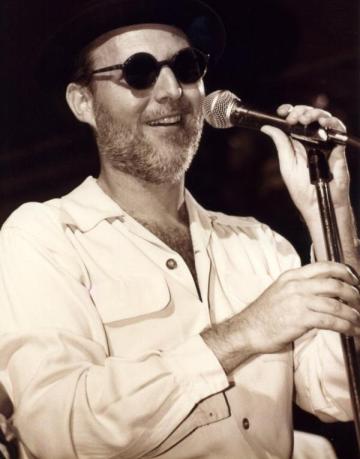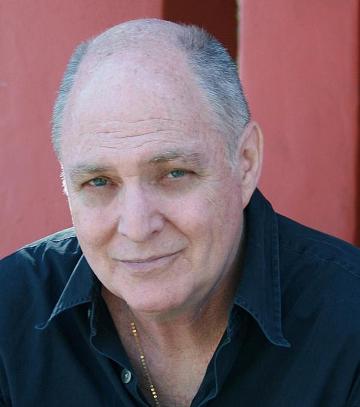 Billy
Vera Part III: The Songs
Billy
Vera Part III: The Songs
 Billy
Vera Part III: The Songs
Billy
Vera Part III: The Songs
 One might expect that from someone who is an
accomplished singer and a songwriter like Billy Vera is, that he might have some
earth shattering secrets to share with others, as to why he his voice has held
up so well over the years. Not so.
One might expect that from someone who is an
accomplished singer and a songwriter like Billy Vera is, that he might have some
earth shattering secrets to share with others, as to why he his voice has held
up so well over the years. Not so.
“My voice is in better shape, the more that I sing. I don’t do vocal exercises and sometimes my voice gets tired by the end of a long set or if we do two sets, I have trouble having the power that I know that I should have. I have never done anything special and I have always felt that if you worry about your voice, it is going to show. (He laughs) I just drink a Pepsi and go for it,” he says.
So, that sort of blows that
theory a bit, however, there is no denying that Billy Vera’s songs are his
legacy and in today’s third and final segment of our interview with another of
“When I was coming up, how hip you were, was determined by how Black you danced, how Black you played, how Black you dressed, how black you sounded and sang. The next generation after me, which was the boomer generation and I was born two years before the first boomer. The boomer generation and how hip they were, was determined by how British their influences were. That is just more generational. Most of us who grew up in my time and the people before me, grew up digging the sounds of Black R&B, black jazz and even Black pop or a Nancy Wilson and people like that. That was just mainly my style. I also listened to the Sinatras of the world. I dug him. Not that I would try to copy him. In the beginning you always (copy people a little), even the great Ray Charles copied people. I can go record by record and say that he got this piano lick from this guy and he started singing this way, because he was listening to that. Over time, our own style eventually evolves Mick Jagger was trying to be Don Covay or Muddy Waters and he couldn’t be, so what came out was a unique Rolling Stones sound. Everybody tries to do it, Sinatra came out trying to be Bing Crosby and then his own thing came along eventually,” says Vera.
Although, Billy Vera is not
fond of autobiographical songs, one of the prettiest songs that he has written
is “Hopeless Romantic,” which is drawn from his own life.
“I was still recovering from a
breakup and a girl who broke my heart back in
When you have a song with a title like “Let You Get
Away,” you might assume that it is also drawn from the songwriter’s own life,
however, that is not the case with this particular song. From the early to the
mid eighties Billy Vera’s songwriting began to take a little different direction
and “Let You Get Away,” was part of that process.
“I
was on a roll about that time and I hadn’t written for awhile and then I wrote a
song called “Moonglows.” I was saying to myself, I am not a kid anymore. It is
stupid for a forty year old guy to be still writing songs from an immature,
adolescent point of view.
I would see a lot of artists trying to stay
hip and trying to stay young, so they could appeal to young audiences. I thought
it looked ridiculous if you tried to do that, so I thought; how do I start
writing things that are more grownup songs? I thought, I could look back to
things that happened in my past and sort of muse on that. This song “Moonglows,”
which was later recorded by Lou Rawls was the first of that batch of songs and
then “Let You Get Away,” was the third or fourth in that whole group of songs.
There was this scene in an Orson Welles movie where Joseph Cotton talks about a
girl he once saw, when he was on a ferry and the two ferries (passed). He saw
her on the other boat. He said, ‘A day hasn’t gone by, when I haven’t thought of
her, in the last twenty years,’ or whatever it was.
That always struck me as a mood, and I tried
to make the music (for “Let You Get Away”) sound that way. It is a nostalgic way
of something that happened in the past or of someone who was there in the past,”
explains Vera.
Then there was the song that made Billy Vera a household
name, “At This Moment.”
“The song
had its genesis when I was still living in
“The song had its genesis when I was still living in
Perhaps the song “At This Moment,” strikes a chord with
so many people, because the words are everything that Billy Vera tries to avoid
in his songwriting, they are deeply personal.
“I
was pretty f** up over this girl. Never before or since, have I gone down that
low over a girl. I lost thirty pounds. I didn’t think of it as ‘This is going to
be the song that is going to make my life.’
I made a little demo of it, back in 
“For five years I was without a record deal and I was making my living scraping
by with a few club dates and I was working as an actor. I started doing some TV
shows, movies and stuff like that and I was kind of getting by. Then one day I
got this phone call and (the guy) said are you the same Billy Vera that has the
band and I said ya’. He said thank God, we didn’t know who your agent was or how
to get hold of you. We came to see you at the club the other night and you sang
this song that we want to use on our television show, called
Family Ties.
I said, oh, call up Warner Bros. get a license
for it and good luck.
By that time people had used my songs on a few
TV shows and you make a few hundred bucks and that’s nice. Then they ran the
episode where Michael J. Fox meets the girl and I got a bag full of mail. That
had never happened. I said wow!
I said, I guess this song has something. One
day I was having lunch with Richard Foos who had a label called Rhino Records,
which was not in the contemporary music business. They put out old records,
reissues and oldies. I said Richard how many records do you need to break even
on an album. He said we have a low overhead, so we could probably break even on
2,000 copies. I said, if I guarantee you two thousand sales, I could sell them
in the clubs if I need to, over a year or two. I asked him if he would put out a
compilation of the music that I did for Alfa. He said yes and he did it
basically as a favor to me. Then I told him about the TV show. By the time we
got the record out, we missed the reruns. As luck would have it, the following
season they ran an episode where the girl breaks up with Michael J. Fox and they
used my song again. This time the story of the song, boy loses girl, is the
story of the episode, boy loses girl. This time
It was time for reflection, “I was now forty-two years
old, bald and not exactly rock star material (he laughs) and I come on American
Bandstand. My two dreams as a kid were to play the Apollo and to be on American
Bandstand. I played the Apollo at twenty-three and at forty-two I was on
American Bandstand (he laughs again). Little girls were screaming for this old
forty-two year old guy. I am not just off the bus, so I knew the likelihood of
me having a continuing career at that age and in a music business that is geared
towards teeny boppers was slender. I’m not stupid. You follow it up the best
that you can. I tried to get Rhino to put out “Hopeless Romantic,” or an edited
version of “Here Comes The Dawn,” for a follow-up, based on what I knew of the
record business, which is, if the public tells you that they like you singing
sad ballads, give them another one. Rhino (instead) put out “I Can Take Care Of
Myself,” which was an up-tempo hit, five years earlier. People aren’t going to
connect that with the guy who sang “At This Moment,” and they didn’t. To top it
off, radio gave me the first one, but they were not going to give me the second
one and they had their hand out. Rhino wasn’t going to do payola. It had
everything going against it.”
On the strength of his success with “At This Moment,”
and with the help of an old friend Michael Cuscuna and on the strength of a
recommendation from Bruce Lundvall, Billy Vera would eventually produce three
records for Lou Rawls on the Blue Note Records label.
While Billy Vera may be more identified with the song “At This Moment,” by music fans worldwide, those inside the music business also know him as a good songwriter who over the years wrote several hit songs, recorded by music legends. That does not happen unless you are tremendously gifted. Return to Our Front Page
Photo by Teri Alexis, protected by copyright ©, All Rights Reserved
This interview is protected by copyright © and may not be reproduced in print or on the internet or through any other means without the written permission of Riveting Riffs Magazine, All Rights Reserved